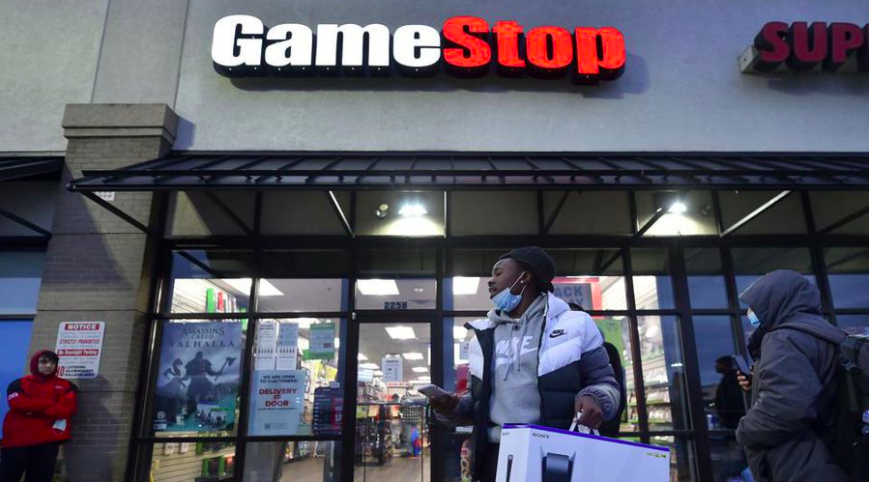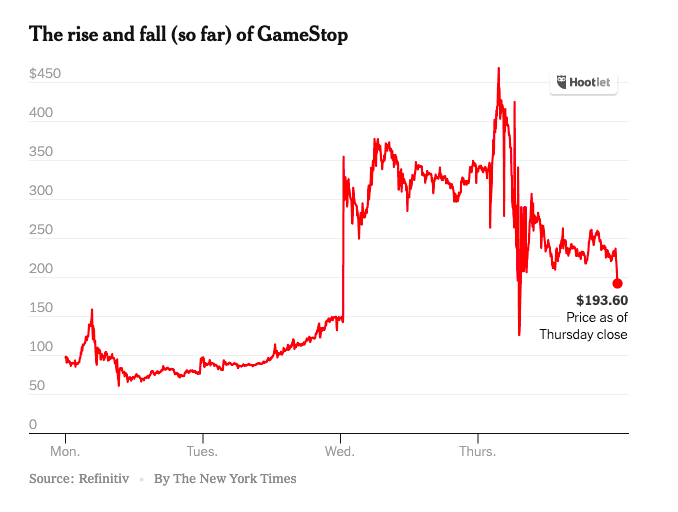Failing video game retailer GameStop’s stock was up 1700%. Then it dropped 75% in 90 minutes. WHAT IS GOING ON?
Tesla’s stock is way up. BlackBerry’s shares are up nearly 280 percent this year. Stock in AMC, the movie theatre chain, has surged nearly 840 percent.
But that is nothing compared to GameStop, a troubled video game retailer that was once a fixture in suburban malls.
GameStop’s market value increased to over $24 billion from $2 billion in a matter of days.
Its shares have risen over 1,700 percent since December. Between Tuesday and Wednesday, the market value rose over $10 billion.
Then, overnight, the value of Gamestop stock dropped by three quarters. Then by the end of the week, bounce up again. What on earth is going on?
Individual investors often derided as “dumb money,”— many of them followers of a popular, juvenile, foul-mouthed Reddit page called Wall Street Bets — banded together to put the squeeze on Wall Street hedge funds that had bet GameStop’s shares would fall.
In Wall Street parlance, this is a “short squeeze” — a strategy sometimes employed by sophisticated investors against one another. Hedge funds attempting to short GameStop have lost more than $5 billion of the squeeze. his week, Tesla’s chief executive and world’s richest man, Elon Musk, fuelled the frenzy in trading GameStop Options by posting about the Reddit page on Twitter.
In many cases private investors – trading on commission-free App Robinhood – were trading on margin. That means they were using funds borrowed from their broker Robinhood. As trading volumes rose this week, Robinhood faced growing risk. They decided to limit trading.
Almost immediately, GameStop’s shares plunged, falling 75 percent in 90 minutes, causing outrage among RobinHood’s customers who suggest the app is more interested in protecting rich Wall Streeters than their name suggests.
Meanwhile the trading forced Robinhood to raise more than $1 billion from its existing investors, most likely because it needs more cash to cover heightened margin requirements. Then Robinhood relaxed restrictions on the GamesStop stock and its price rose again.
How does this end? No one knows. But some analysts say the intense activity could lead to contagion – forcing hedge funds on the losing side of these trades to sell parts of their portfolios to raise cash to cover their losses.
What does it all mean? Politicians are already struggling to come to terms with what looks like a populist revolt against Wall Street.
But for now, many are just quoting an old Wall Street saying: “the bigger the balloon, the louder the pop.” The question is who will be left holding the bag when GameStop’s stock eventually comes crashing?
Posted in: Infographic of the day
